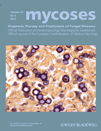
MYCOSES
Scope & Guideline
Advancing mycological insights for clinical excellence.
Introduction
Aims and Scopes
- Clinical Epidemiology of Fungal Infections:
Research on the prevalence, risk factors, and outcomes associated with various fungal infections, including candidemia, aspergillosis, and dermatophytoses, particularly in immunocompromised patients. - Antifungal Resistance Mechanisms:
Exploration of the mechanisms behind antifungal resistance in various fungal species, with a focus on genetic mutations and environmental factors contributing to increased resistance. - Diagnostic Innovations:
Development and evaluation of new diagnostic tools and methodologies, including molecular diagnostics, serological tests, and imaging techniques for early and accurate detection of fungal infections. - Treatment Strategies and Efficacy Studies:
Investigation of the efficacy of antifungal agents, including traditional therapies and novel treatments, in managing invasive fungal infections and their impact on patient outcomes. - Fungal Pathogenesis and Host Interactions:
Study of the interactions between fungal pathogens and host immune responses, including the role of specific immune cells and cytokines in the context of fungal infections. - Global Mycological Health Issues:
Assessment of the global burden of fungal diseases, their impact on public health, and the challenges faced in different geographical regions regarding diagnosis and treatment.
Trending and Emerging
- COVID-19-Associated Fungal Infections:
An increasing focus on the incidence and management of fungal infections related to COVID-19, particularly pulmonary aspergillosis and candidemia, as the pandemic has highlighted the vulnerability of certain patient populations. - Fungal Resistance Mechanisms and Management Strategies:
Heightened interest in understanding the molecular mechanisms of antifungal resistance and the development of novel antifungal agents or combination therapies to combat resistant strains. - Use of Advanced Diagnostics:
Growing trend towards the implementation of advanced diagnostic techniques such as PCR, next-generation sequencing, and artificial intelligence in the rapid detection and characterization of fungal pathogens. - Public Health and Global Burden of Fungal Diseases:
Increased emphasis on the global epidemiological burden of fungal diseases, with studies highlighting the need for improved public health strategies and awareness to combat these infections. - Exploration of Fungal Biofilms:
Emerging research on the role and impact of fungal biofilms in chronic infections and their resistance to treatment, indicating a shift towards understanding the complex nature of fungal pathogenesis.
Declining or Waning
- Traditional Dermatophyte Studies:
Research focusing solely on traditional dermatophytes, such as 'Trichophyton' and 'Microsporum', has seen a decrease as newer methodologies and a broader range of pathogens gain attention. - Basic Mycology without Clinical Relevance:
Studies that focus on basic mycological research without clear clinical applications or implications have become less prevalent, as researchers aim to bridge the gap between laboratory findings and clinical practice. - Single-Center Studies:
There is a noticeable reduction in the publication of single-center studies that lack broader epidemiological context, as multi-center and larger cohort studies are preferred for their generalizability. - Non-invasive Fungal Infections:
Research on non-invasive fungal infections has decreased, with a greater emphasis now placed on invasive fungal diseases and their management, particularly in immunocompromised populations.
Similar Journals

FUNGAL DIVERSITY
Exploring the Unseen: The Science of FungiFungal Diversity is a premier academic journal dedicated to advancing the science of mycology, encompassing ecological, evolutionary, and biological research involving fungi. Published by Springer, this journal has established a significant presence in the academic community since its inception in 1998, and it continues to thrive with a convergence period extending to 2024. Holding a prestigious Q1 ranking in several categories — including Ecology, Ecology, Evolution, Behavior and Systematics, and Plant Science — Fungal Diversity showcases cutting-edge research that influences ecological management, conservation, and biodiversity studies. With its notable positions in Scopus rankings, including being ranked #1 in Environmental Science - Ecology, the journal serves as an essential resource for researchers, professionals, and students interested in the complex interplay between fungi and their environments. Although it does not currently offer open access, interested readers can benefit from the journal's rich repository of peer-reviewed articles, making Fungal Diversity a vital component of the scientific literature landscape.

MYCOPATHOLOGIA
Driving innovation in mycology and plant science.MYCOPATHOLOGIA, published by Springer in the Netherlands, stands as a pivotal journal in the fields of mycology, plant science, and veterinary microbiology. With its extensive history dating back to 1938, this journal has consistently contributed to the understanding of fungal pathogens and their impact on both agriculture and animal health. It currently holds impressive rankings in Scopus, including Q1 status in Agronomy and Crop Science, and Q2 rankings in Applied Microbiology and Biotechnology, demonstrating its influence and rigor in the scientific community. Researchers and professionals benefit from its curated, high-quality studies which address critical areas such as plant-pathogen interactions and veterinary mycology. While not open access, MYCOPATHOLOGIA emphasizes comprehensive research output and serves as a vital resource for advancing knowledge and fostering innovation in its disciplines. The journal remains committed to disseminating valuable insights that drive forward both academic inquiry and practical applications in related fields, ensuring its relevance and importance in contemporary research.
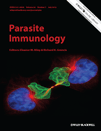
PARASITE IMMUNOLOGY
Exploring the Complexities of Immunological Defense.PARASITE IMMUNOLOGY, published by Wiley, is a leading journal in the field of immunology and parasitology, with an ISSN of 0141-9838 and E-ISSN of 1365-3024. Since its inception in 1979, it has played a pivotal role in advancing our understanding of host-parasite interactions, immunological responses to parasitic infections, and the mechanisms of immunological resistance. The journal is adeptly positioned within the academic community, currently holding a prestigious Q2 ranking in Parasitology and a Q3 ranking in Immunology for 2023, indicating its significant influence and relevance. Its comprehensive scope attracts a diverse readership, contributing to the discourse surrounding novel therapeutic approaches and emerging challenges in parasitic diseases. With a consistent convergence of research until 2024, PARASITE IMMUNOLOGY is an essential resource for researchers, professionals, and students seeking to deepen their knowledge and foster collaboration in these dynamic fields. Although it is not an open-access journal, the insights shared within its pages are invaluable for shaping future research trajectories.
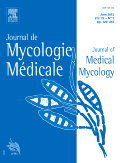
JOURNAL DE MYCOLOGIE MEDICALE
Connecting Science and Medicine in MycologyJOURNAL DE MYCOLOGIE MEDICALE is a premier publication in the field of infectious diseases, particularly focusing on the study of mycology and its clinical implications. Published by MASSON EDITEUR, this esteemed journal is based in France and has been disseminating valuable research since its inception in 1994. With an ISSN of 1156-5233 and an E-ISSN of 1773-0449, it plays a critical role in advancing knowledge in mycological infections, positioning itself in the Q3 category for infectious diseases as per the 2023 quartiles. As indicated by its ranking in Scopus, ranking #142 out of 344 in the medicine-infectious diseases category, the journal maintains a prominent presence within the academic community, appealing to researchers, healthcare professionals, and students alike. Although access options are not open access, the journal endeavors to promote a deeper understanding of mycological studies that are crucial for combating ongoing and emerging infectious threats. As it continues to converge on new findings up to 2024, JOURNAL DE MYCOLOGIE MEDICALE remains an essential resource for those invested in the critical intersections of mycology and medicine.
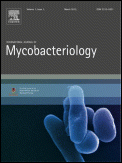
International Journal of Mycobacteriology
Connecting minds to combat infectious diseases effectively.International Journal of Mycobacteriology is a peer-reviewed, open-access journal published by Wolters Kluwer Medknow Publications that specializes in the field of infectious diseases with a particular emphasis on mycobacterial research. Since its inception in 2012, this journal has emerged as a vital resource for researchers, healthcare professionals, and students aimed at advancing understanding and treatment of mycobacterial infections, including tuberculosis. With the journal being indexed in Scopus and holding a Q3 ranking in both Infectious Diseases and Microbiology (medical) for 2023, it reflects a substantial contribution to scholarly discourse in these domains, despite its current ranking positioning. Authors and readers benefit from the open access model, ensuring widespread dissemination of research findings and fostering collaboration across the global health community. Located in Mumbai, India, the journal continues to thrive with a commitment to quality research and innovation, welcoming contributions that further the exploration of mycobacteriology throughout the converged years from 2012 to 2024.

Current Fungal Infection Reports
Empowering healthcare professionals with critical findings.Current Fungal Infection Reports is an essential academic journal dedicated to the rapidly evolving field of mycology, specifically focusing on the diagnosis, treatment, and epidemiology of fungal infections. Published by Springer, this journal aims to provide a comprehensive platform for researchers, healthcare professionals, and scholars to disseminate groundbreaking findings and insights into the complexities surrounding fungal diseases. With an ISSN of 1936-3761 and an E-ISSN of 1936-377X, the journal is recognized in the Q3 category for Infectious Diseases as of 2023 and holds a Scopus rank of #199 out of 344 in its field, showcasing its growing influence. Although not currently open access, Current Fungal Infection Reports remains an important resource for those wishing to stay updated on key developments and trends within this critical area of global health. Through its commitment to advancing knowledge and fostering academic exchange, the journal plays a crucial role in combating the challenges posed by fungal infections, making it a must-read for anyone involved in infectious disease research and treatment.
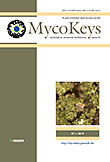
MycoKeys
Fostering collaboration in the fascinating realm of fungi.MycoKeys, published by PENSOFT PUBLISHERS, is a leading open-access journal dedicated to advancing the understanding of fungal biology and its diverse implications within agricultural, ecological, and biological sciences. With its ISSN 1314-4057 and E-ISSN 1314-4049, this journal has achieved remarkable academic prestige, reflected in its 2023 Scopus rankings placing it in the first quartile (Q1) across several categories, including Agricultural and Biological Sciences (miscellaneous), Ecology, Evolution, Behavior and Systematics, and Plant Science. MycoKeys provides a platform for researchers, professionals, and students interested in the latest findings and methodologies regarding fungi, their environments, and their interactions within various ecosystems. Since its transition to open access in 2011, the journal has championed the dissemination of high-quality research to a global audience, fostering collaboration and innovation in mycology. With a publishing history that converges from 2015 to 2024, MycoKeys remains a vital resource for those committed to exploring the multifaceted roles fungi play in our world.
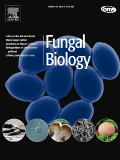
Fungal Biology
Exploring the Intricacies of Fungal LifeFungal Biology, published by Elsevier Science Ltd, is a premier journal dedicated to advancing the field of mycology and its interdisciplinary applications. With an ISSN of 1878-6146 and E-ISSN 1878-6162, this journal serves as a vital platform for researchers and professionals interested in the ecological, evolutionary, and genetic aspects of fungi, as well as their implications in infectious diseases and plant sciences. As of 2023, it proudly holds a Q2 ranking in Ecology, Evolution, Behavior and Systematics and Plant Science, and a Q3 ranking in Genetics and Infectious Diseases, highlighting its significant contribution to these domains. The journal boasts an impressive Scopus rank, including a percentile of 83rd in Ecological studies, ensuring that published research reaches a wide audience and impacts ongoing discourse in the field. With open access options, Fungal Biology encourages the dissemination of high-quality research, aimed to foster collaboration and innovation among scholars and practitioners. With its convergence of knowledge from 2010 to 2024, this journal is instrumental for those advancing the understanding of fungal biology and its myriad applications in environmental and health sciences.

MYCOSCIENCE
Pioneering Insights into Mycology and BiodiversityMYCOSCIENCE, published by the Mycological Society of Japan, is a prominent peer-reviewed journal that serves as an essential resource in the fields of ecology, evolution, behavior, and systematics, highlighted by its Q2 ranking in the 2023 category quartiles. Established in 1994 and continuing through 2024, the journal focuses on mycological research, providing insights into the interconnected worlds of fungi and their ecological roles. With an ISSN of 1340-3540 and an E-ISSN of 1618-2545, MYCOSCIENCE aims to disseminate high-quality research that addresses current issues and trends within the discipline. Despite not being an open-access journal, it makes a significant contribution to advancing fungal biology and its applications in agriculture and environmental science, making it an invaluable asset for researchers, professionals, and students alike. Located in the vibrant academic environment of Tokyo, Japan, MYCOSCIENCE stands out for its dedication to fostering a deeper understanding of mycology and its implications for biodiversity and ecosystem health.

CLINICAL MICROBIOLOGY AND INFECTION
Transforming Knowledge into Clinical PracticeCLINICAL MICROBIOLOGY AND INFECTION is a leading journal published by Elsevier Science Ltd, dedicated to advancing the field of infectious diseases and clinical microbiology. With its ISSN 1198-743X and E-ISSN 1469-0691, this esteemed journal has maintained its influential presence since 1995, showcasing high-impact research that addresses critical issues in the diagnosis, treatment, and prevention of infections. Ranked in the Q1 quartile for Infectious Diseases, Medicine (miscellaneous), and Microbiology (medical) categories, and boasting impressive Scopus rankings of #12 and #7 respectively, it sits at the forefront of scientific inquiry in these disciplines. Although it is not an Open Access journal, it provides comprehensive access options for institutions and individuals, ensuring the dissemination of vital research findings. As the field of clinical microbiology continues to evolve, CLINICAL MICROBIOLOGY AND INFECTION remains an essential resource for researchers, clinicians, and students aiming to stay informed on the latest developments and breakthroughs in understanding infectious diseases.